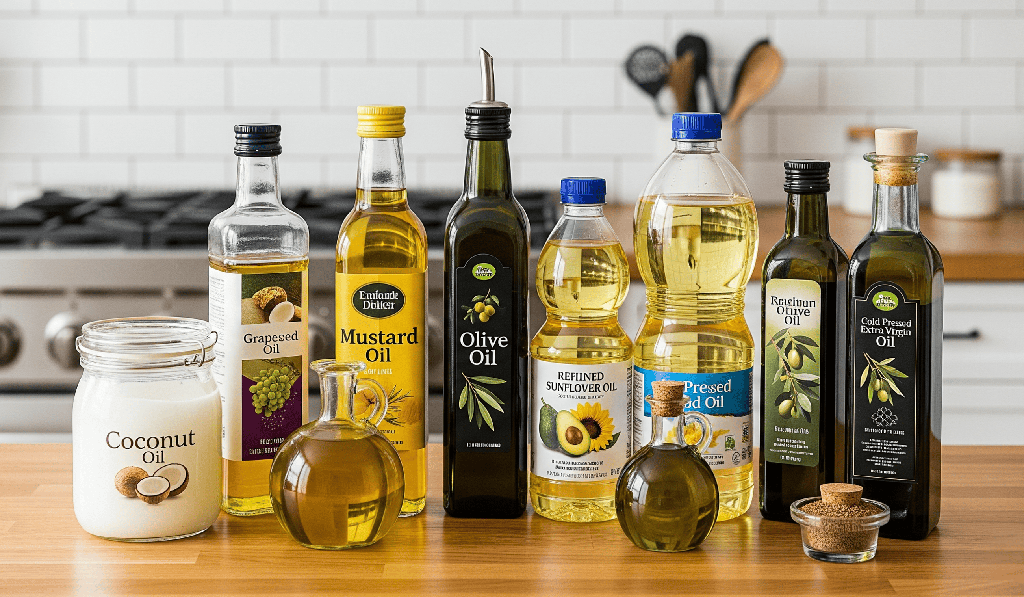Food & Health
Cold-Pressed vs. Refined: The Truth About Cooking Oils

Walking down the cooking oil aisle can be overwhelming. The shelves are filled with bottles labeled "refined," "virgin," "extra-virgin," and "cold-pressed." While it might seem like just marketing jargon, the difference between a cold-pressed vs refined oil is significant, impacting everything from flavor and aroma to, most importantly, your health.
So, what is the real story behind these labels? Understanding how these oils are made is the key to choosing the one your body truly prefers. This guide will clarify the processes, bust some common myths, and give you clear answers backed by research.

What is Refined Oil? The Industrial Process Explained
Refined oil is designed for mass production, a long shelf life, and a neutral taste. To achieve this, the raw ingredients go through an intense, multi-step industrial process that often involves high heat and chemical solvents.
The typical process includes high-heat extraction, solvent extraction (often with hexane), refining, bleaching, and deodorizing. The major drawback of this intense process is that it also removes or destroys many of the oil's beneficial micronutrients, including tocopherols (Vitamin E), phytosterols, and phenolic compounds.
What is Cold-Pressed Oil? The Traditional Method
Cold-pressing is a simple, traditional, and gentle method. It is how our ancestors, like the local makers in Kerala, have always extracted oil. The process involves simply crushing the seeds or fruit (like coconuts) using a mechanical press at low temperatures, with no external heat or chemical solvents applied.
The result is a pure, unadulterated oil that retains its natural flavor, aroma, and, most importantly, its health-promoting compounds. Studies show that cold-pressed oils maintain significantly higher levels of antioxidants, vitamins, and polyphenols compared to their refined counterparts. This is why cold-pressed coconut oil has that rich, distinct aroma that refined oil lacks.
Busting the "Smoke Point" Myth
The main argument for using refined oil is its higher smoke point. However, heating oils to very high temperatures can lead to oxidative degradation and the formation of harmful compounds, regardless of the initial smoke point. The healthier approach is to use the right oil for the job. High-quality, stable cold-pressed oils like coconut oil are excellent for most everyday cooking, including sautéing.
So, Which Oil is Best for Your Health?
The evidence points clearly in one direction. For maximizing nutrition and minimizing exposure to industrial processing, cold-pressed oils are the superior choice. By choosing cold-pressed oils from trusted, local sources, you are not just choosing better flavor—you are choosing a whole, nourishing food over a heavily processed industrial product.